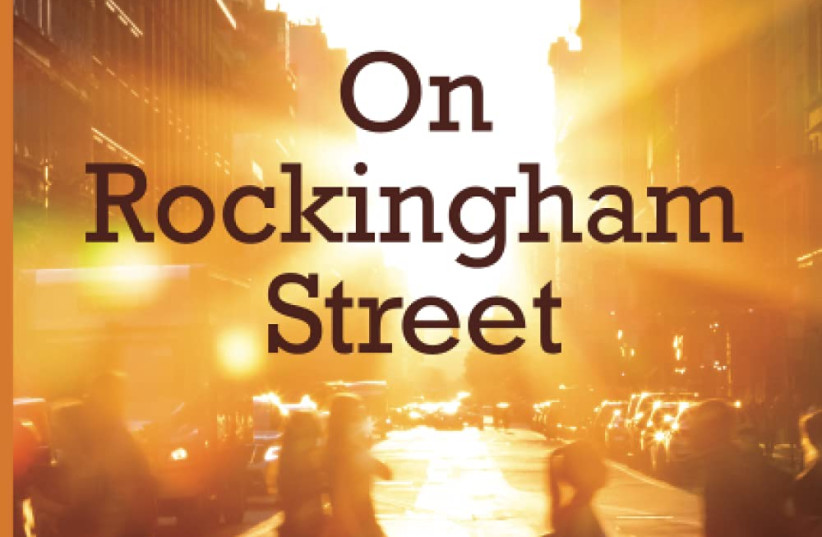"Jewish legacy” seems to be the flavor of the month, for everyone who’s not obsessing exclusively about Ben & Jerry’s ice cream.
There is Jewish legacy being snarkily rewritten, like that on Netflix’s Kardashian-like reality show, My Unorthodox Life, whose main point seems to be that being a millionaire doesn’t convey protection against being superficial: Here, the Judaism is almost irrelevant, like a side of slaw on the deli special, even though everyone really knows the main event is the money and the mini-skirts.
There is Jewish legacy being despaired of, like that of the 27% of the Pew Report Jews, who don’t care if their grandchildren are Jewish, and who themselves no longer identify Jewishly except for the odd bagel and lox. Here it’s like they’re trying to make a startling revelation out of an already acknowledged truism: Hey, everyone, the world is round!
And then there is the poignancy of Jewish legacy described in David Kuney’s evocative new memoir, On Rockingham Street: Our Journey from Vilna to the Suburban South.
Kuney, a DC lawyer who regularly argues before the Supreme Court, skillfully paints the circuitous path of his family’s meanderings from their we’re-Orthodox-because-everyone-is Orthodox roots in Vilna, to their somewhat deliberate shedding of the religious traditions by the time they get to Chicago, and finally to their partial return to Jewish communal life in Arlington, Virginia. It is Kuney’s grandparents, Sol and Anna, who leave Vilna for a better life in America; it is Sol who, on the boat packed with immigrants heading to a better life in America, tosses his siddur off the side. It is Sol who, once in Chicago discovers not enough money to cover the bar mitzvah preparation for his oldest son Joe, Kuney’s father, along with a taste for fried shrimp which he hides from his wife. It is Sol and Anna’s household in which Joe learns nothing about his Judaism, and why he subsequently follows a job and moves his own family to a non-Jewish neighborhood in Arlington.
And yet, though Sol and Anna give their children only the barest taste of Judaism – nothing to rebel against like My Unorthodox Life’s repressive traditions and customs, but nothing to gravitate toward, either – they are appalled to discover that their grandson (the author, David Kuney) once in Arlington recites the Lord’s Prayer at his public school, and that his family celebrates Christmas. Having passed down to the next generation nothing-in-particular Judaism, they are nonetheless horrified to realize their children and grandchildren have nothing-in-particular Judaism.
It’s like watching the Pew Report come to life. What’s surprising is that everyone is so surprised.
And so Sol and Anna follow their children and grandchildren to Arlington; and once ensconced down the street, do their best to instill some of what was lost. But even then, what they provide is mostly culinary Judaism: Shabbat meals replace baseball games, but like the Jews in the Pew Report, it’s still a bagels-and-lox brand of Judaism.
Eventually, the next generation gets more involved; David’s parents join their local synagogue, and eventually David’s father even – at the age of 80 – goes back to have the bar mitzvah his father chose not to pay for.
David himself, advised by his father not to intermarry – although his father is unable to verbalize why he shouldn’t – nonetheless follows the advice, and the next generation of Kuneys remains nominally Jewish.
And yet, the poignancy of this memoir lies partly in the fact that no one in the cast really knows what they are missing: Unlike the My Unorthodox Jews, they can’t repudiate what they never had, what they didn’t experience, what they don’t know. Like the Pew Jews, their only real point of connection is the bagels.
Even David, who gets involved with several major Jewish organizations in his later years, and serves on the boards of directors of both the Reconstructionist Rabbinical College and the Pardes Institute of Jewish Studies in Jerusalem; and despite going back to Pardes to fill in some of the gaps in his own Jewish knowledge, mourns the fact that his Jewish literacy level is still so low; and that his children don’t belong to synagogues.
How, he wonders, can Jews reclaim their Jewish legacy if they don’t know what they’re missing?
And how, one wonders, can David himself reclaim it, since he sits in shul alone?
ON ROCKINGHAM STREET: OUR JOURNEY FROM VILNA TO THE SUBURBAN SOUTHBy David KuneyWipf & Stock232 pages; $28

